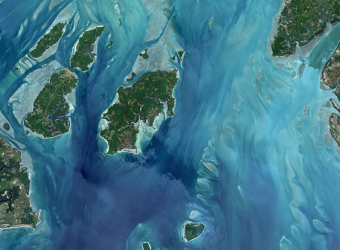Thematic Overview
Globally interconnected economies, increasing urbanisation, population growth, technological progress, and climate change are impacting transportation & logistics, and require new or adapted solutions to tackle these challenges. This includes, among other, assessing the financial impact on the sector. Disaster events and supra-national crisis may affect key infrastructure, flooding causes impassability of transport systems, regulatory requirements demand the reduction of CO2 emissions, and quality of life is significantly impacted by traffic induced air pollution and lack of road safety. Resilient and sustainable transportation networks and infrastructure systems are a mandatory prerequisite for ensuring mobility, access to markets and supply of goods, thus contributing to global connectivity and a prosperous economy. Bringing latest Earth Observation (EO) technology or products into the processes and workflows of relevant IFIs and stakeholder groups will support mainstreaming of EO derived information and level up their capabilities with novel, value adding and independent EO data & analytics.
Transport & Infrastructure Themes
 Planning & Construction
Planning & Construction
This topic focuses on the early stages of transport infrastructure development, including monitoring infrastructure construction and analysing the demand for transport infrastructure. It emphasises the importance of using EO technology to remotely monitor construction progress, especially in remote or vast areas, to optimise cost and efficiency. It also emphasises the need to analyse regional characteristics to forecast infrastructure demand, guiding priority setting and strategic planning for network expansion. This approach ensures that infrastructure development is in line with real needs and future growth, supporting efficient and effective transport systems.
 Infrastructure Quality Assessment
Infrastructure Quality Assessment
Infrastructure quality assessment emphasises the crucial evaluation of the structural integrity, quality and potential degradation of transport infrastructure. This theme supports the use of advanced assessment techniques to prioritise investments and prevent further damage or safety risks, ensuring the longevity and reliability of roads, ports and railways. It also supports the development of comprehensive inventories of existing transport networks, using EO data to identify and catalogue infrastructure assets. This fundamental knowledge helps maintain and improve the quality and safety of transport infrastructure.
 Mobility Patterns and Road Safety
Mobility Patterns and Road Safety
The topic of mobility patterns and road safety delves into the analysis of how people and goods move within and between regions, integrating EO data to reveal mobility patterns, peak activity times and transport modes. It also focuses on identifying and mapping road safety hazards, using EO analysis of topography, land use and other factors to inform road safety projects. This theme aims to improve understanding of transport flows and barriers, enabling the development of safer, more efficient and more accessible transport networks.
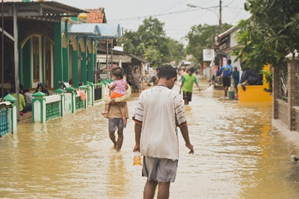 Sustainability and Climate Resilience
Sustainability and Climate Resilience
Sustainability and Climate Resilience addresses the environmental considerations and climate challenges facing transport infrastructure. It includes the assessment of the environmental impact of planned infrastructure, including the estimation of emission levels and the integration of risk mitigation measures into the design. In addition, this theme includes the assessment of infrastructure vulnerability to climate risks by combining EO data, meteorological data and climate models. The aim is to promote sustainable mobility solutions that reduce greenhouse gas emissions and are resilient to climate change, safeguarding infrastructure investments from future climate-related risks.
Discover our
e-flyer and
brochure for more information regarding services and products provided on these themes in response to requirements identified in the Transport and Infrastructure domain by IFIs and their Client Countries:
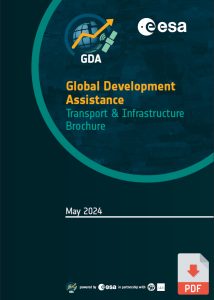
 T&I Interactive Video
T&I Interactive Video
Consortium Members












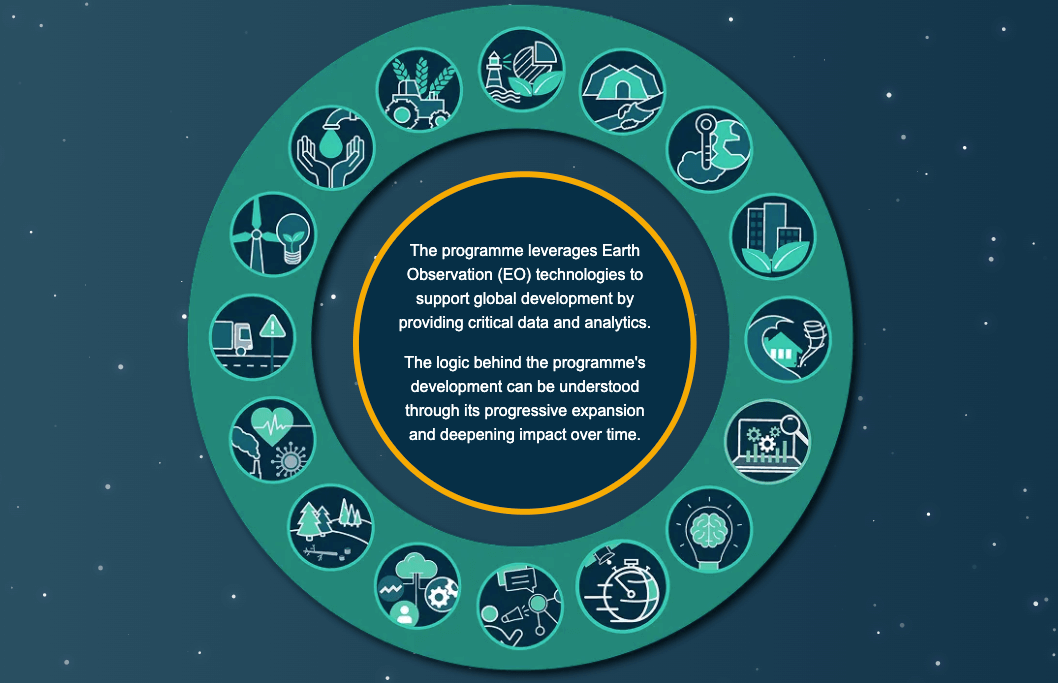








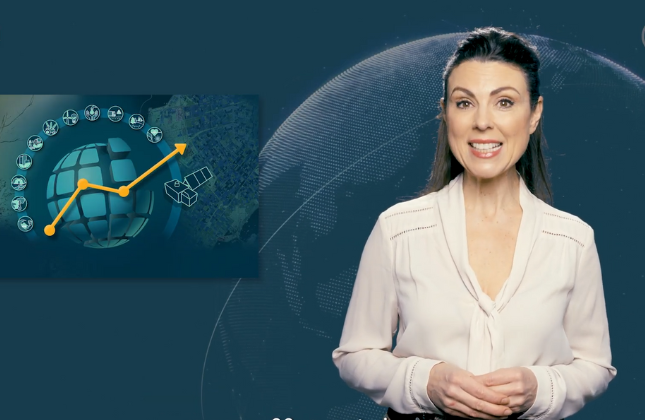

 Planning & Construction
This topic focuses on the early stages of transport infrastructure development, including monitoring infrastructure construction and analysing the demand for transport infrastructure. It emphasises the importance of using EO technology to remotely monitor construction progress, especially in remote or vast areas, to optimise cost and efficiency. It also emphasises the need to analyse regional characteristics to forecast infrastructure demand, guiding priority setting and strategic planning for network expansion. This approach ensures that infrastructure development is in line with real needs and future growth, supporting efficient and effective transport systems.
Planning & Construction
This topic focuses on the early stages of transport infrastructure development, including monitoring infrastructure construction and analysing the demand for transport infrastructure. It emphasises the importance of using EO technology to remotely monitor construction progress, especially in remote or vast areas, to optimise cost and efficiency. It also emphasises the need to analyse regional characteristics to forecast infrastructure demand, guiding priority setting and strategic planning for network expansion. This approach ensures that infrastructure development is in line with real needs and future growth, supporting efficient and effective transport systems. Infrastructure Quality Assessment
Infrastructure quality assessment emphasises the crucial evaluation of the structural integrity, quality and potential degradation of transport infrastructure. This theme supports the use of advanced assessment techniques to prioritise investments and prevent further damage or safety risks, ensuring the longevity and reliability of roads, ports and railways. It also supports the development of comprehensive inventories of existing transport networks, using EO data to identify and catalogue infrastructure assets. This fundamental knowledge helps maintain and improve the quality and safety of transport infrastructure.
Infrastructure Quality Assessment
Infrastructure quality assessment emphasises the crucial evaluation of the structural integrity, quality and potential degradation of transport infrastructure. This theme supports the use of advanced assessment techniques to prioritise investments and prevent further damage or safety risks, ensuring the longevity and reliability of roads, ports and railways. It also supports the development of comprehensive inventories of existing transport networks, using EO data to identify and catalogue infrastructure assets. This fundamental knowledge helps maintain and improve the quality and safety of transport infrastructure.
 Mobility Patterns and Road Safety
The topic of mobility patterns and road safety delves into the analysis of how people and goods move within and between regions, integrating EO data to reveal mobility patterns, peak activity times and transport modes. It also focuses on identifying and mapping road safety hazards, using EO analysis of topography, land use and other factors to inform road safety projects. This theme aims to improve understanding of transport flows and barriers, enabling the development of safer, more efficient and more accessible transport networks.
Mobility Patterns and Road Safety
The topic of mobility patterns and road safety delves into the analysis of how people and goods move within and between regions, integrating EO data to reveal mobility patterns, peak activity times and transport modes. It also focuses on identifying and mapping road safety hazards, using EO analysis of topography, land use and other factors to inform road safety projects. This theme aims to improve understanding of transport flows and barriers, enabling the development of safer, more efficient and more accessible transport networks.
 Sustainability and Climate Resilience
Sustainability and Climate Resilience addresses the environmental considerations and climate challenges facing transport infrastructure. It includes the assessment of the environmental impact of planned infrastructure, including the estimation of emission levels and the integration of risk mitigation measures into the design. In addition, this theme includes the assessment of infrastructure vulnerability to climate risks by combining EO data, meteorological data and climate models. The aim is to promote sustainable mobility solutions that reduce greenhouse gas emissions and are resilient to climate change, safeguarding infrastructure investments from future climate-related risks.
Sustainability and Climate Resilience
Sustainability and Climate Resilience addresses the environmental considerations and climate challenges facing transport infrastructure. It includes the assessment of the environmental impact of planned infrastructure, including the estimation of emission levels and the integration of risk mitigation measures into the design. In addition, this theme includes the assessment of infrastructure vulnerability to climate risks by combining EO data, meteorological data and climate models. The aim is to promote sustainable mobility solutions that reduce greenhouse gas emissions and are resilient to climate change, safeguarding infrastructure investments from future climate-related risks.









